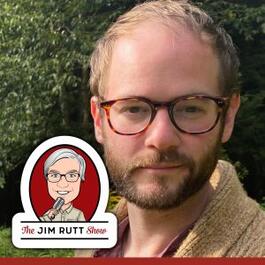
The Jim Rutt Show
Crisp conversations with critical thinkers at the leading edge of science, technology, politics, and social systems.
Show episodes
In this flipped episode, Brendan Graham Dempsey interviews Jim about the ideas in his recent Substack essays "A Minimum Viable Metaphysics" and "What I Mean by 'Metaphysics'." They discuss metaphysics as assumptions for learning and reasoning, the difference between deduction, induction, & abduction, Jim's belief that
Jim talks with Nate Soares about the ideas in his and Eliezer Yudkowsky's book If Anybody Builds It, Everyone Dies: Why Superhuman AI Would Kill Us All. They discuss the book's claim that mitigating existential AI risk should be a top global priority, the idea that LLMs are grown, the opacity of deep learning networks,
Jim talks with Alex Ebert about the ideas in his Substack essay "New Age and the Religion of Self: The Anatomy of a Rebellion Against Reality." They discuss the meanings of New Age and religion, the New Thought movement, the law of attraction, manifesting, Trump's artifacts of manifestation, the unmooring from concrete
Jim talks with Joe Edelman about the ideas in the Meaning Alignment Institute's recent paper "Full Stack Alignment: Co-Aligning AI and Institutions with Thick Models of Value." They discuss pluralism as a core principle in designing social systems, the informational basis for alignment, how preferential models fail to
Jim talks with John Preston about his book 40 Flushes to Grow Your Business: The World's #2 Business Series, which is designed to be read during bathroom breaks. They discuss breaking free from being a one-person show, hiring self-guided employees, the importance of business owner support networks, clarity on business
Jim talks with Pablos Holman about the ideas in his new book Deep Future: Creating Technology That Matters. They discuss deep tech versus shallow tech, computational modeling and simulation for real-world problems, the hacker mindset, the role of inventors, nuclear power and renewable energy solutions, population growt











